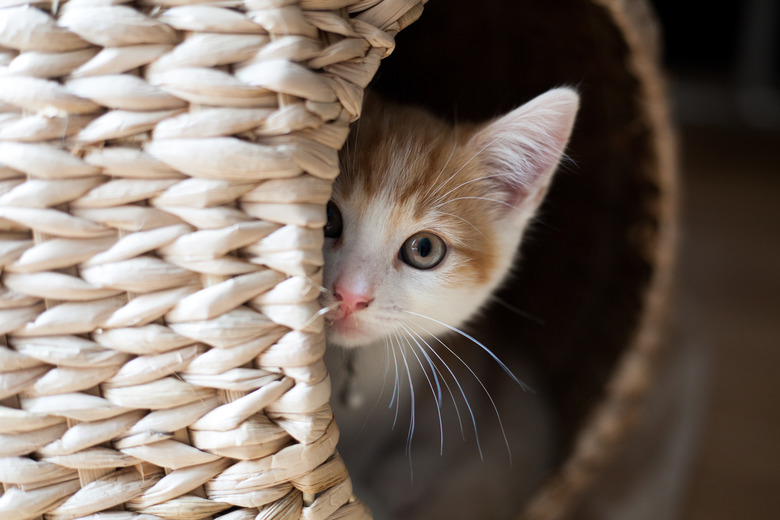My Adopted Cat Is Scared. What Should I Do?
You recently adopted a new cat, and you've noticed that they seem to be scared all the time. While you're doing everything you can for your cat, they are afraid of a lot of things and you aren't able to bond with them. You're thinking: Now what? Thankfully, there are things you can do to care for your fearful cat and try to make them feel more comfortable in their new surroundings. By following a few tips, you can help them and successfully welcome them into your home.
Why is my new cat scared?
Why is my new cat scared?
You may have noticed that your cat is scared of loud noise, your children, or other pets in your home. Even if you have a calm home, they may run and find their hiding place whenever you're around. Your cat hides under the couch, chairs, and anywhere else where they think you can't find them.
Your fearful cat may also lose control of their bladder and/or bowels, freeze in place, or become aggressive by growling, biting, scratching, swatting, or hissing. You can also tell how your cat is feeling by their body language. If they're laying their ears back, opening their eyes up wide, arching their back and raising their hair, or crouching closer to the ground, those are some signs that they're afraid.
Your cat may be scared because they had some traumatic experiences at the shelter or in other people's foster homes. Perhaps another cat or animal attacked them, they weren't fed properly, or they didn't have a comfortable home environment. They may just be a nervous cat, no matter what situation they're in. But there are things you can do to alleviate their fears. Just follow these steps.
Create a place where your fearful cat can relax
Create a place where your
fearful cat can relax
Your cat needs a spot where they can unwind and retreat, especially if they're being triggered. Find an area of your home that's quiet and peaceful, and put their cat bed, toys, litter box, and water and food bowls there. You can keep them in this area until they're ready to explore the rest of the house one room at a time.
Have a daily routine in place
Have a daily routine in
place
Cats need consistency. Creating a daily routine for your cat, which could include feeding them at the same time every day, giving them attention when you get home from work, and playing with them right before bed, are going to make them feel more comfortable and less anxious and afraid.
Use positive reinforcement training
Use positive reinforcement training
All pets learn best when they are trained with positive reinforcement. You can train your cat to come out of their hiding place or stop being scared by giving them treats when they are brave. You can also cuddle them if they come out of their hiding place or don't retreat when they get afraid. They will begin to have positive associations with acting less scared because it means they will get a treat or some other type of reward.
Consult your vet
Consult your vet
You may not be able to help your cat on your own. If you talk to your vet, they may determine that your cat is experiencing health issues and isn't just afraid. Or, your vet may put them on a drug like Prozac if they're anxious. They might also recommend changing their diet, ensuring they get plenty of playtime every day, cuddling them, and talking to them in a soothing tone. It's always a good idea to consult your vet, especially if you have a senior cat since they are more prone to health problems.
In summary
In summary
If your adopted cat is scared, you do have the power to try and help them. With your vet's help, you can reassure your cat and provide them with the love, happiness, and care they deserve.


